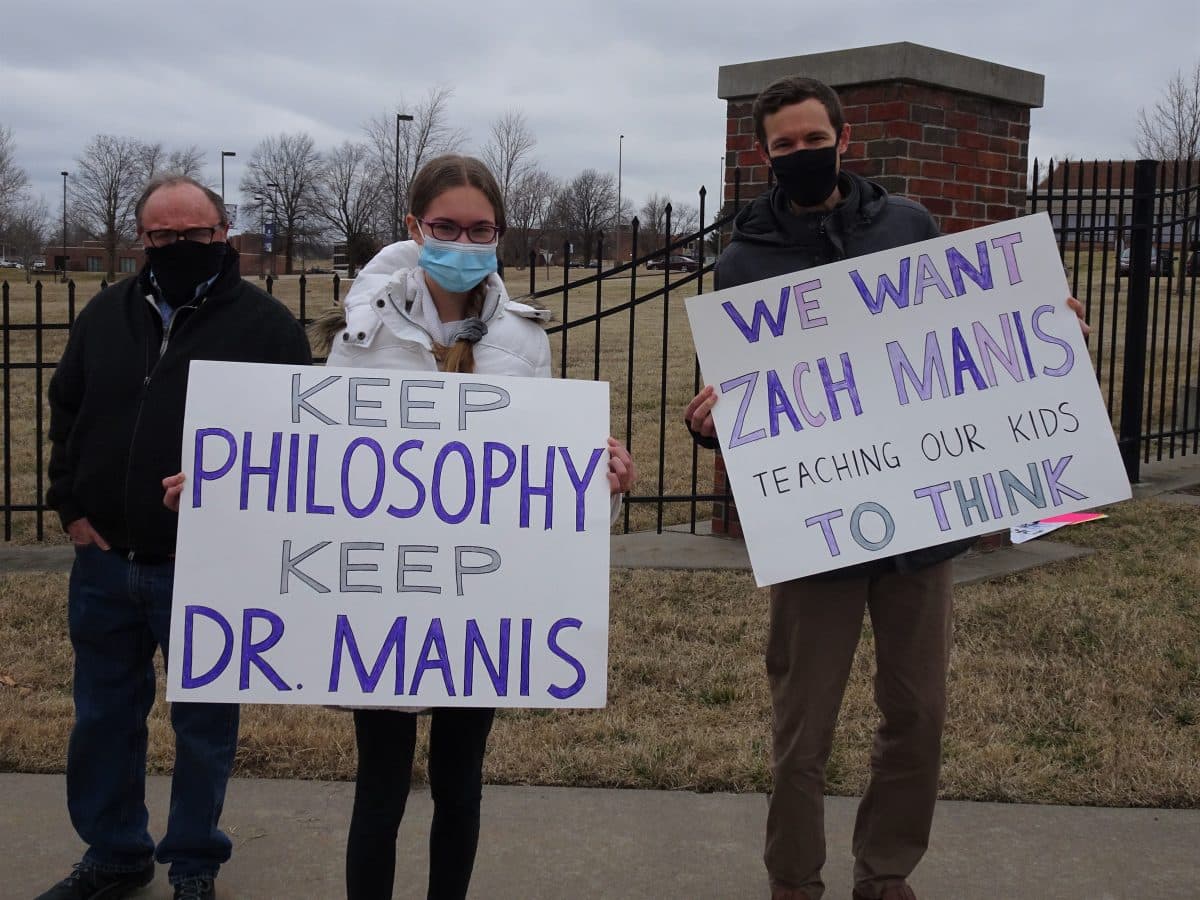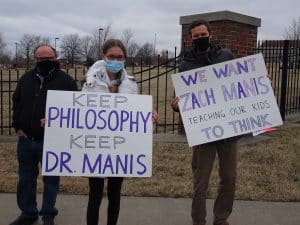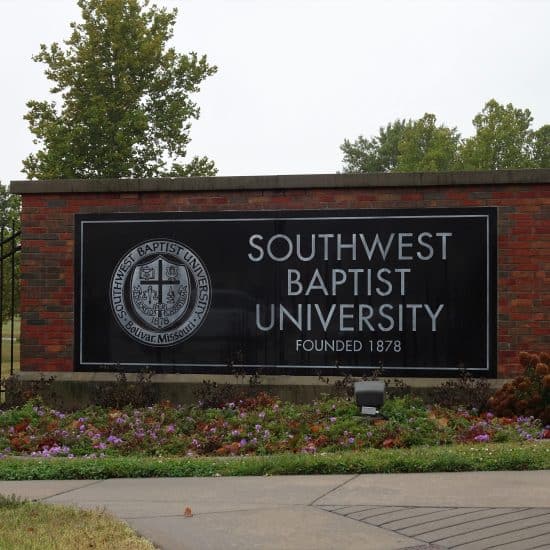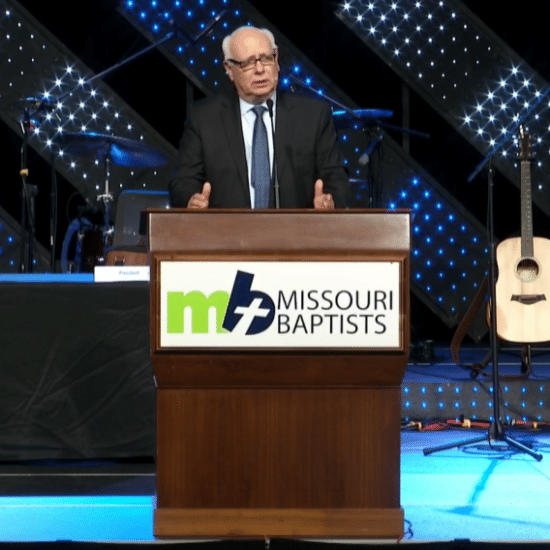
The American Association of University Professors is challenging Southwest Baptist University in Bolivar, Missouri, for terminating its tenured philosophy professor in apparent violation of academic freedom. The national nonprofit group of professors devoted to academic freedom, shared governance, and quality higher education, requested a response from SBU in a March 10 letter to the school’s interim president, Brad Johnson, and other SBU leaders.

Part of a Feb. 26 rally at Southwest Baptist University to support professors targeted for dismissal by SBU trustees. (Brian Kaylor/Word&Way)
The move last year to eliminate the philosophy program and end the position of its tenured philosophy professor, Zach Manis, came amid a two-year controversy over theology and control at the liberal arts university. Manis had previously been targeted by some in the Missouri Baptist Convention seeking to drive out him and other religion professors. Manis was attacked for his alleged beliefs about hell, though his book published in 2019 by Oxford University Press articulated a theology different from that he was accused of holding.
“The interest of our Association in the case of Professor Manis arises from its longstanding commitment to fundamental tenets of academic freedom, tenure, and due process, as enunciated in the enclosed 1940 Statement of Academic Freedom and Tenure,” the letter explains before noting that SBU’s faculty handbook mentions the school has adopted the academic freedom section of that statement created by the AAUP and the Association of American Colleges and Universities.
The AAUP’s letter, signed by its director of the Department of Academic Freedom, Tenure, and Governance, notes the 1940 statement explains that tenured professors should not be terminated except “for adequate cause” or “extraordinary circumstances because of financial exigencies.”
The letter adds that “Professor Manis’s appointment was not terminated for cause (i.e., for reasons related to professional fitness)” and “we are not aware that SBU has declared financial exigency.” As AAUP explains, eliminating the position of a tenured professor due to financial reasons should involve several steps not taken by SBU “to protect academic freedom by discouraging administrations from using a real or apparent financial crisis as a pretext for terminating the appointments of faculty members for impermissible reasons, such as those that violate academic freedom.”
“As a result, the AAUP must regard the action to terminate Professor Manis’s appoint as a summary dismissal, effected in violation of the 1940 Statement of Academic Freedom and Tenure,” the letter adds.
The AAUP cites an admission in October by then-acting chair of the SBU Board of Trustees, Robert Ingold, who wrote that the philosophy department’s elimination was a measure taken “to move the theology program in a more conservative direction” and remove a faculty member with alleged “views to the left of mainstream Missouri Baptist doctrine.”
“If this report is true,” the AAUP letter adds, “the action against Professor Manis would appear to have been taken in disregard of his academic freedom rights and therefore in evident violation, again, of the 1940 Statement.”
Thus, the AAUP urged that the termination of Manis “be immediately rescinded” or for “the administration to seek a resolution of the case acceptable to Professor Manis.”
The AAUP letter mentions that SBU’s Faculty Senate in October passed a resolution arguing that “contractual procedures were not followed” by SBU according to the school’s faculty handbook.
Unless SBU reverses its decision, Manis will be dismissed at the end of this academic year despite his tenured status. More recently, the SBU Board of Trustees decided to deny tenure and terminate two behavioral sciences professors. That move led to an effort by faculty to declare “no confidence” in the SBU Board of Trustees.
Another professor is among the individuals challenging in court the new governing documents SBU’s trustees passed after MBC demands for greater legal control over the school. That professor’s attorney included the letter from the AAUP in new court filings on Monday (March 15) as more evidence backing up the professor’s assertions that SBU is no longer meeting its contractual obligations that include honoring academic freedom. Thus, the professor asserts he should be given standing to challenge the new governing documents (referred to as the “Putative Charter”).
“The record before the Court demonstrates that tenure has been denied to qualified professors, and tenured professors are being terminated, in violation of the Principles of Academic Freedom that form a part of John Doe’s contractual relationship with SBU. That the Putative Charter has been prematurely, and wrongfully, employed by SBU to deprive the faculty, including John Doe, of their contractual guarantees, establishes John Doe’s actual interest in the formal, judicial approval of the Putative Charter.”
Judge Michael Hendrickson in the Circuit Court of Polk County has yet to rule on the petitions of those seeking to intervene to block SBU’s new governing document.






